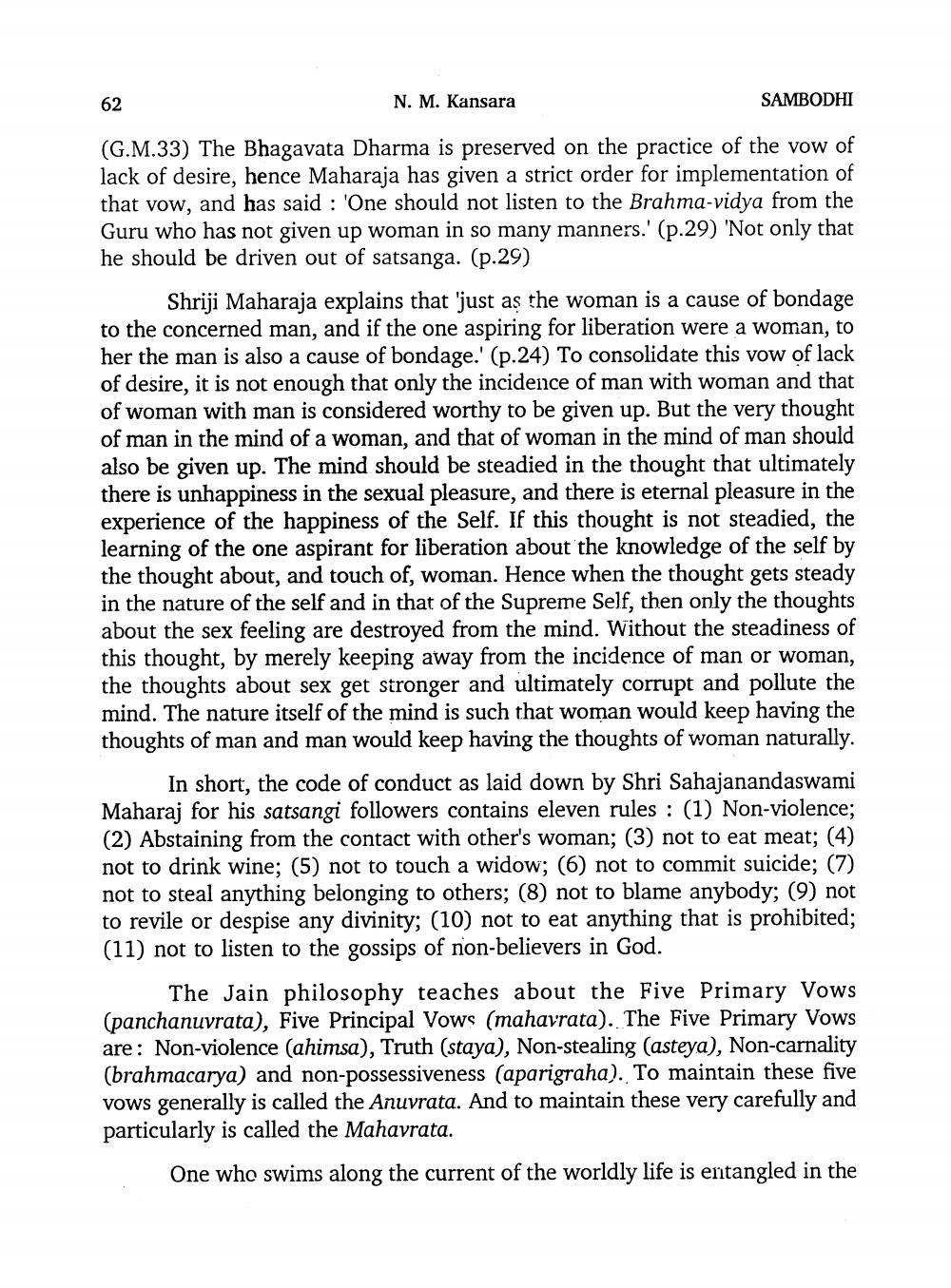________________
N. M. Kansara
SAMBODHI
(G.M.33) The Bhagavata Dharma is preserved on the practice of the vow of lack of desire, hence Maharaja has given a strict order for implementation of that vow, and has said : 'One should not listen to the Brahma-vidya from the Guru who has not given up woman in so many manners.' (p.29) 'Not only that he should be driven out of satsanga. (p.29)
Shriji Maharaja explains that 'just as the woman is a cause of bondage to the concerned man, and if the one aspiring for liberation were a woman, to her the man is also a cause of bondage.' (p.24) To consolidate this vow of lack of desire, it is not enough that only the incidence of man with woman and that of woman with man is considered worthy to be given up. But the very thought of man in the mind of a woman, and that of woman in the mind of man should also be given up. The mind should be steadied in the thought that ultimately there is unhappiness in the sexual pleasure, and there is eternal pleasure in the experience of the happiness of the Self. If this thought is not steadied, the learning of the one aspirant for liberation about the knowledge of the self by the thought about, and touch of, woman. Hence when the thought gets steady in the nature of the self and in that of the Supreme Self, then only the thoughts about the sex feeling are destroyed from the mind. Without the steadiness of this thought, by merely keeping away from the incidence of man or woman, the thoughts about sex get stronger and ultimately corrupt and pollute the mind. The nature itself of the mind is such that woman would keep having the thoughts of man and man would keep having the thoughts of woman naturally.
In short, the code of conduct as laid down by Shri Sahajanandaswami Maharaj for his satsangi followers contains eleven rules : (1) Non-violence; (2) Abstaining from the contact with other's woman; (3) not to eat meat; (4) not to drink wine; (5) not to touch a widow; (6) not to commit suicide; (7) not to steal anything belonging to others; (8) not to blame anybody; (9) not to revile or despise any divinity; (10) not to eat anything that is prohibited; (11) not to listen to the gossips of non-believers in God.
The Jain philosophy teaches about the Five Primary Vows (panchanuvrata), Five Principal Vows (mahavrata). The Five Primary Vows are: Non-violence (ahimsa), Truth (staya), Non-stealing (asteya), Non-carnality (brahmacarya) and non-possessiveness (aparigraha). To maintain these five vows generally is called the Anuvrata. And to maintain these very care particularly is called the Mahavrata.
One who swims along the current of the worldly life is entangled in the




